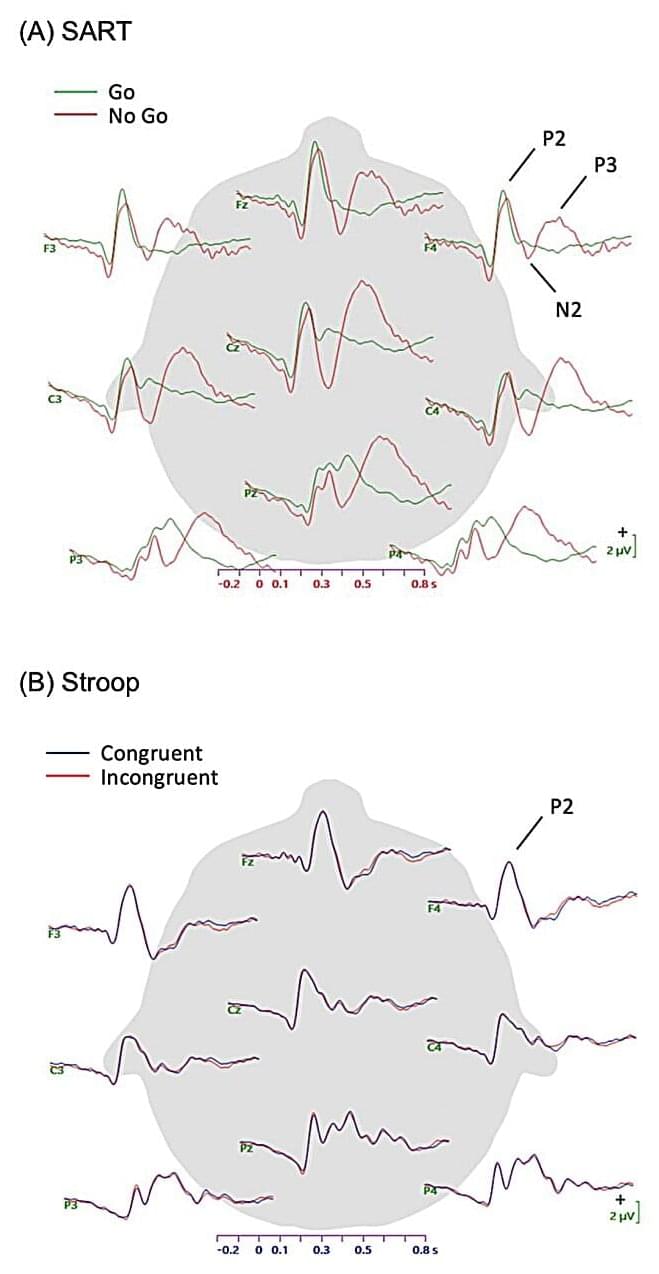The data collected by this research team confirms that mind-wandering is associated with an increase in alpha oscillations, which was also reported in previous works.
When humans are completing a specific task, their minds can shift from what they are doing to their own internal thoughts. This shift of attention from a task to internal events, known as off-task thinking or mind-wandering, is well-documented and has been studied extensively in the past.
A research question that remains unanswered is whether mind-wandering should be considered an adaptive/beneficial or maladaptive/undesirable process. Depending on the circumstances in which it occurs, in fact, this process could distract a person from an important task they are trying to complete or shift their attention onto something equally or more important for them.
In other words, the thoughts onto which the attention shifts could be unimportant and distracting, or more applicable to the goals that are personally relevant to a specific person. Some psychology researchers have also proposed that intentional mind-wandering is more adaptive, as it entails the deliberate control of one’s attention, while spontaneous mind-wandering is maladaptive, as it entails failing to control one’s attention.
